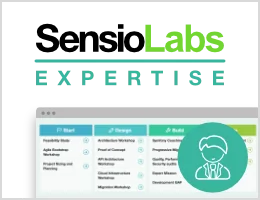How to Use the submit() Function to Handle Form Submissions
The recommended way of processing Symfony forms is to use the handleRequest() method to detect when the form has been submitted. However, you can also use the submit() method to have better control over when exactly your form is submitted and what data is passed to it:
1 2 3 4 5 6 7 8 9 10 11 12 13 14 15 16 17 18 19 20 21 22 23
use Symfony\Component\HttpFoundation\Request;
use Symfony\Component\HttpFoundation\Response;
// ...
public function new(Request $request): Response
{
$task = new Task();
$form = $this->createForm(TaskType::class, $task);
if ($request->isMethod('POST')) {
$form->submit($request->getPayload()->get($form->getName()));
if ($form->isSubmitted() && $form->isValid()) {
// perform some action...
return $this->redirectToRoute('task_success');
}
}
return $this->render('task/new.html.twig', [
'form' => $form,
]);
}The list of fields submitted with the submit() method must be the same as
the fields defined by the form class. Otherwise, you'll see a form validation error:
1 2 3 4 5 6 7 8 9 10 11 12 13 14
public function new(Request $request): Response
{
// ...
if ($request->isMethod('POST')) {
// '$json' represents payload data sent by React/Angular/Vue
// the merge of parameters is needed to submit all form fields
$form->submit(array_merge($json, $request->getPayload()->all()));
// ...
}
// ...
}Tip
Forms consisting of nested fields expect an array in submit(). You can also submit individual fields by calling submit() directly on the field:
1
$form->get('firstName')->submit('Fabien');Tip
When submitting a form via a "PATCH" request, you may want to update only a few
submitted fields. To achieve this, you may pass an optional second boolean
argument to submit(). Passing false will remove any missing fields
within the form object. Otherwise, the missing fields will be set to null.
Caution
When the second parameter $clearMissing is false, like with the
"PATCH" method, the validation will only apply to the submitted fields. If
you need to validate all the underlying data, add the required fields
manually so that they are validated:
1 2
// 'email' and 'username' are added manually to force their validation
$form->submit(array_merge(['email' => null, 'username' => null], $request->getPayload()->all()), false);
